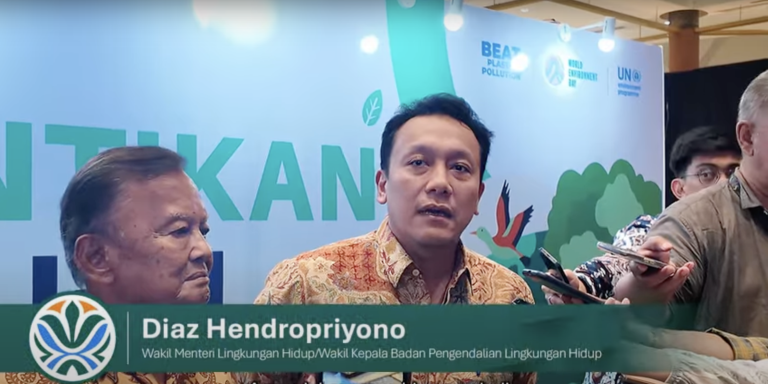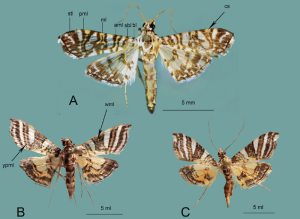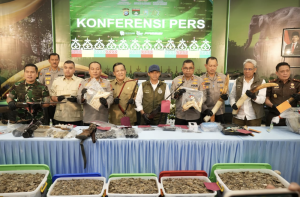Jakarta – Indonesia is turning over a new leaf in its efforts to tackle climate change by utilising biochar technology. Deputy Minister of Environment, Diaz Hendropriyono, on Monday, 7 July, asserted that biochar not only addresses environmental challenges but also becomes Indonesia’s entry point to global carbon trading.
“Biochar is not just an environmental innovation. It is a concrete solution that supports climate change mitigation and adaptation while creating green economic opportunities. Indonesia can be a global pioneer in this sector,” Diaz said in a written statement at the launch of the Association of Biochar Indonesia International (ABII).
Biochar is charcoal produced from the processing of biomass waste, such as bagasse, which is burned under oxygen-limited conditions. The result can absorb greenhouse gas (GHG) emissions from the atmosphere while improving soil quality. This technology is considered effective and cost-effective in reducing the impact of climate change, while simultaneously generating carbon credits that hold economic value in the international market.
“Now the ball is in the association’s court. We have provided technical inputs; it’s just a matter of finalising it with the Ministry of Environment. Hopefully, this sector can be the first carbon trading motor from Indonesia,” said Diaz.
The answer to the ‘triple planetary crisis’
The Minister of National Development Planning and Head of Bappenas, Rahmat Pambudi, who was also present at the ABII launch event, emphasised that biochar is an important tool in addressing the triple planetary crisis—climate change, pollution, and biodiversity loss.
“It may seem simple, but producing quality biochar is a strategic step that addresses three planetary crises simultaneously,” said Rahmat. He also serves as Chairman of ABII’s Supervisory Board and calls for the biochar sector to have a national roadmap that is integrated with Indonesia’s agricultural system and food security.
ABII Chairman Hashim Djojohadikusumo, who is also the President’s Special Envoy on Climate Change, expressed his appreciation for the collaborative spirit in developing the biochar sector.
He added that the biochar sector is not only ecologically promising, but also economically viable. Over the 25-year cooperation period, biochar development is targeted to reduce carbon emissions by 102,500 tonnes of CO₂e. This significant figure can be converted into high-priced carbon credits on the global market. (Hartatik)
Banner photo: Minstry of Environment YouTube channel screenshot















